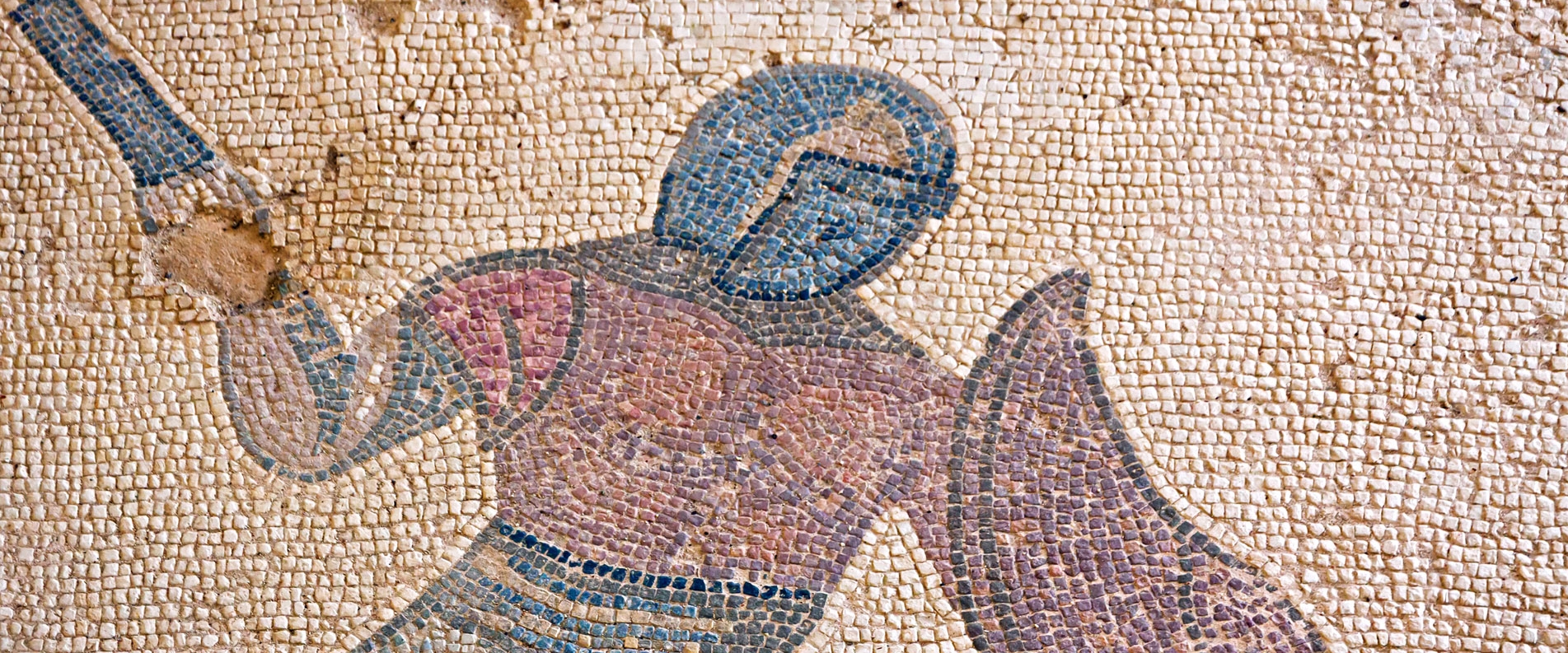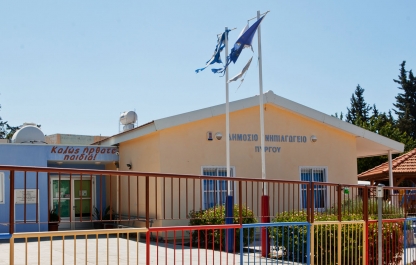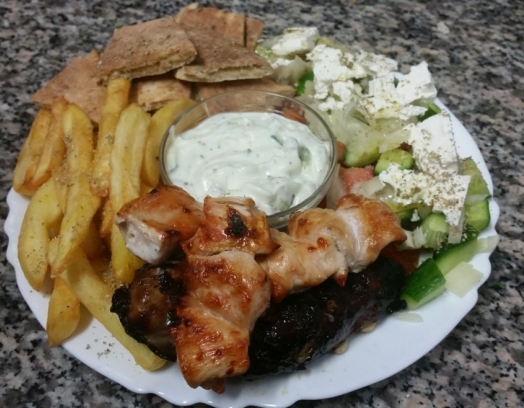In the Roman Empire the Greek language was the language of books: it was a necessary attribute of an educated person (similarly, the Greek language was a compulsory subject in most of the schools in the Russian Empire). There had always been a lexical exchange between Latin and Greek, and the Old Church Slavonic language brought dozens of Greek words to other languages: for example, Russian. And, of course, there are lots of most common English words of Greek origin: air, logic, zone, ceramic and doctor to name just a few.
History of the Greek language and its features
Greek language belongs to the Indo-European family of languages but forms an independent branch. It is native to more than 1,5 million people from Greece, Cyprus, and other countries: Greeks, some Romanians, Albanians and a few Muslim communities.
At the same time, from 3 to 5 million people use Greek as a second language. Who is interested in learning it? Foreigners living in Cyprus and Greece, tourists who return to these countries year after year, businessmen, scholars of languages, people who want to know where most of the European languages are coming from and those who are eager to read foundational philosophy and church books in original.
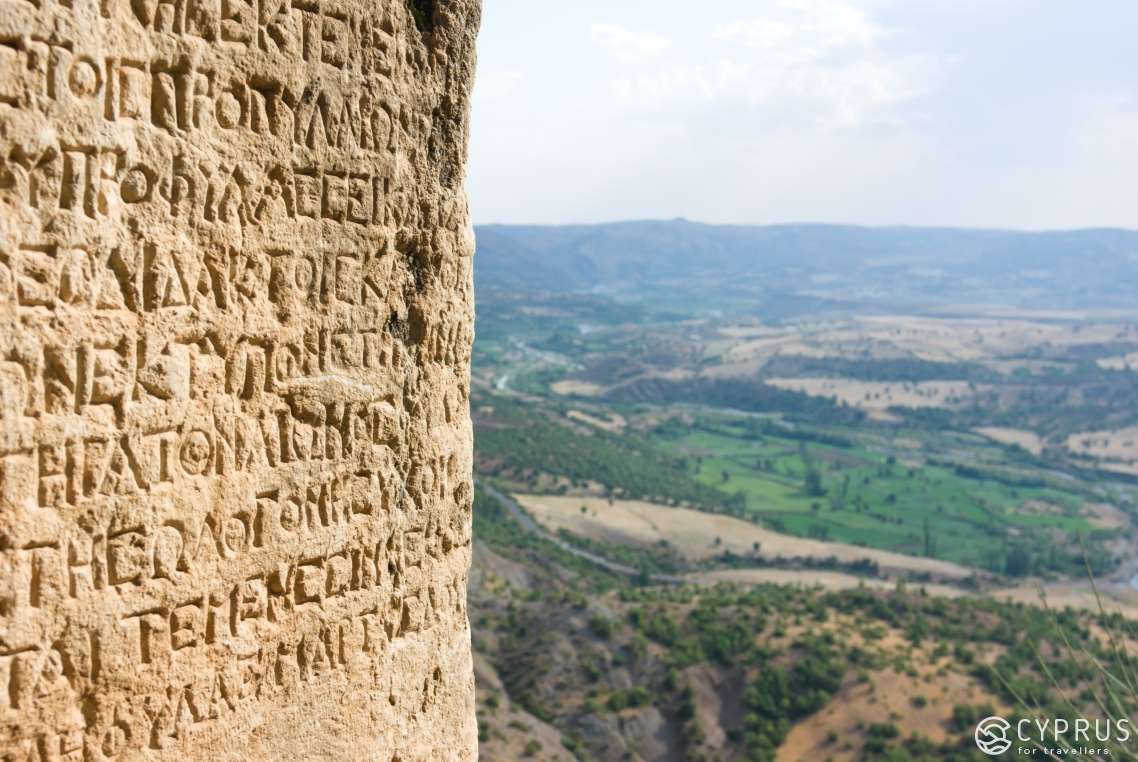
Greek alphabet has been actively used since the end of 9th or the beginning of 8th century BC - before that, during the Mycenaean era, Linear B script was used on the territory of modern Greece. The first letters of the Greek alphabet — «alpha», «beta», «gamma» — are familiar to the most people since childhood, but not everybody knows that all of them used to have a separate meaning — a word starting with the same letter (aleph — an ox, bet — a house, etc.).
A lot of other alphabets and writing systems, such as the Latin alphabet and the Cyrillic alphabet, are based on the Greek alphabet.
It is considered that the Greek alphabet was the first to use different symbols for vowels and consonants. Several dozens of thousands ancient and Medieval Greek manuscripts are preserved in modern museums and scientific centers, and the letters of the Greek alphabet are still used as international symbols in math, chemistry, physics, astronomy and other disciplines.
The history of the Greek language is conventionally divided into three major periods: the Ancient Greek (which is, in turn, chronologically subdivided in Archaic, Classical, Hellenistic and the Late Greek), the Byzantine Greek and the Modern Greek.
The Ancient Greek language was not uniform: it was disintegrated into numerous dialects. The Attic, that belonged to the Eastern group of dialects, ended up becoming the basis for the united Greek language: the beginning of all the modern dialects.
The Ancient Greek language is characterized by more complicated (in comparison with the Modern Greek language) grammar and lots of pronouns, prepositions, and particles. Until the beginning of the 20th century three types of stresses and two types of spiritus were used in written Greek, but as they had not been used in spoken language, after 1982 the Greek language officially became monotonic. The dual number form was out of use at the early stage of the language development, giving place to more familiar to us singular and plural forms.
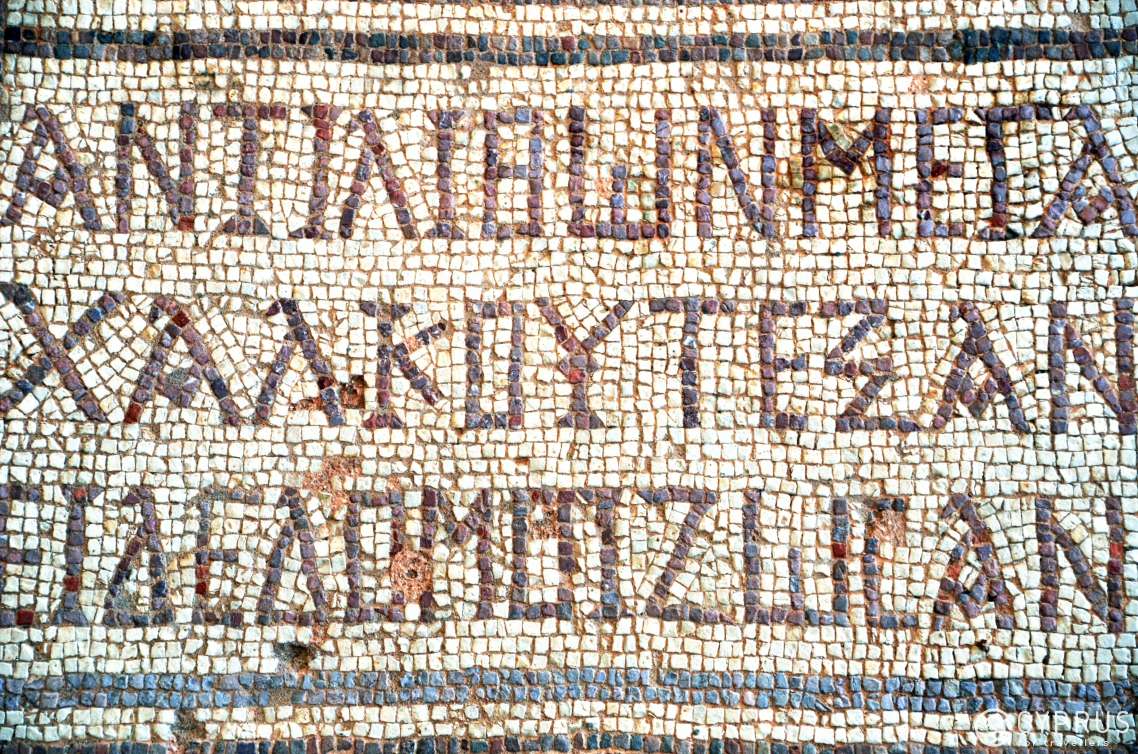
The Greek language is notable for its rich vocabulary. Most of the words are of the Indo-European origin, but there are also many words borrowed from Latin, Italian and Turkish (all the borrowed words received Greek flections – changing suffixes).
The Modern Greek language is divided into several territorial dialects such as the Cypriot dialect, the Cretan dialect, the Pontic dialect, the Northern dialect and a few more.
82% of Cyprus population speaks the Greek language.
Language schools in Limassol
Where to learn Greek in Limassol? There are several language schools where both children and adults have an opportunity to learn this language from the beginning.
The XENIA Solaki Metaxa school is located at 16 Panagioti Tsangari, 4047 Yermasoyia. It was founded in 1989, and since then its teachers have been giving students of all ages classes in English, French, German and other languages, including Greek, which is taught not only as a foreign language, but also as a primary language to Cypriot preschoolers. Here you can attend individual lessons and prepare for a test.
The Plurilingua language school is located in the old town of Limassol, next to the Medieval castle and in the walking distance from the Cyprus University of Technology. Seven language courses are offered here: English, French, German, Greek, Italian, Spanish and Russian. Teachers (all of them are native speakers) make sure to pay attention to all the components of a language and include reading, listening, writing and conversation practice in their lesson plans. Those students who find it difficult to attend group lessons can sign up for private tuition to reach their communication goals.

The Totalcy Education school is known in Limassol mostly for its computer courses for children, but language lessons, including Greek language lessons, are also held here. Options for groups and for individuals are available. The school itself presents its language program as developed for foreigners who love Cyprus and want to visit the island more often and for those who have already started a new life and job here. The Totalcy Education also offers courses for students and teachers who specialize in Greek, translators and interpreters and even Greeks who live abroad. The school also offers courses in English, French, Italian, math, software engineering, Photoshop and other subjects.
Plato Institute is one of the first private educational organizations in Cyprus: it was founded in 1972. For over 40 years classes in economics, IT, accounting, math, English literature and other disciplines has been taught here for children, teenagers, and adults. In the last 15 years, the school has been focusing on languages for professional communication (restaurant business, hospitality management, etc) and cooperates with several European programs.
Adults can choose between several courses: basic Greek (this program is designed to make communication in Greek easier and more enjoyable for foreigners), business Greek (business vocabulary for professionals), Greek for work (vocabulary for lawyers, architects, hotel management and other professions). An individual tuition is also an option.

Ministry of Education and Culture is a governmental organization which is in charge of free Greek language classes for immigrants and permanent residents who speak other languages. The goal of this program is to help people communicate in Greek and participate in the cultural and political life of the island, and increase their chances of employment. Classes start in November. Teenagers (15 and older) and adults can participate. Ministry also holds classes in English, Arabic, French, Turkish and other languages, as well as cultural and art events.
The MARO PITSILLIDOU private school was founded in 1985. English, Greek, math, history and software engineering are taught here. The school also offers a wide choice of online courses dedicated to design, photography, animation and other subjects.
A & P LANGUAGE INSTITUTE language school in Limassol opened more than 20 years ago. It offers language courses for adults: English as a second language (all levels), Greek as a second language and Russian as a second language. Other languages, such as French, Italian and German are also taught here. There are language classes for children, too.
The LINGOkids is a children’s language school where kids from 2 to 7 years old learn Greek. Lessons are held by a native speaker one day a week and last for 60 minutes. French and English classes, art and music workshops for kids are also held here regularly.

Children and teenagers can learn Greek (and get a high school diploma) at the American Academy private school, where British educational system is applied and all the classes are held in English. Graduates of the school are prepared to take major European exams. The Academy includes a kindergarten, an elementary school (for children from 5 to 11 years old), and a high school. Students live in a boarding house on the territory of the Academy.
Greek-English phrasebook
You can start learning Greek by your own, beginning with the letters of the alphabet and their pronunciation and continuing with short easy words. While broadening your vocabulary, start working with grammar (course books of all kinds can be easily found on the internet). If possible, practice speaking with someone who knows the language. If you do not have such person, listening to songs and dialogues is also a great practice.
Greek reading rules can appear especially tricky (there are 6 letters and combinations of letters for the sound «i:», for example), but they only require time to be grasped.
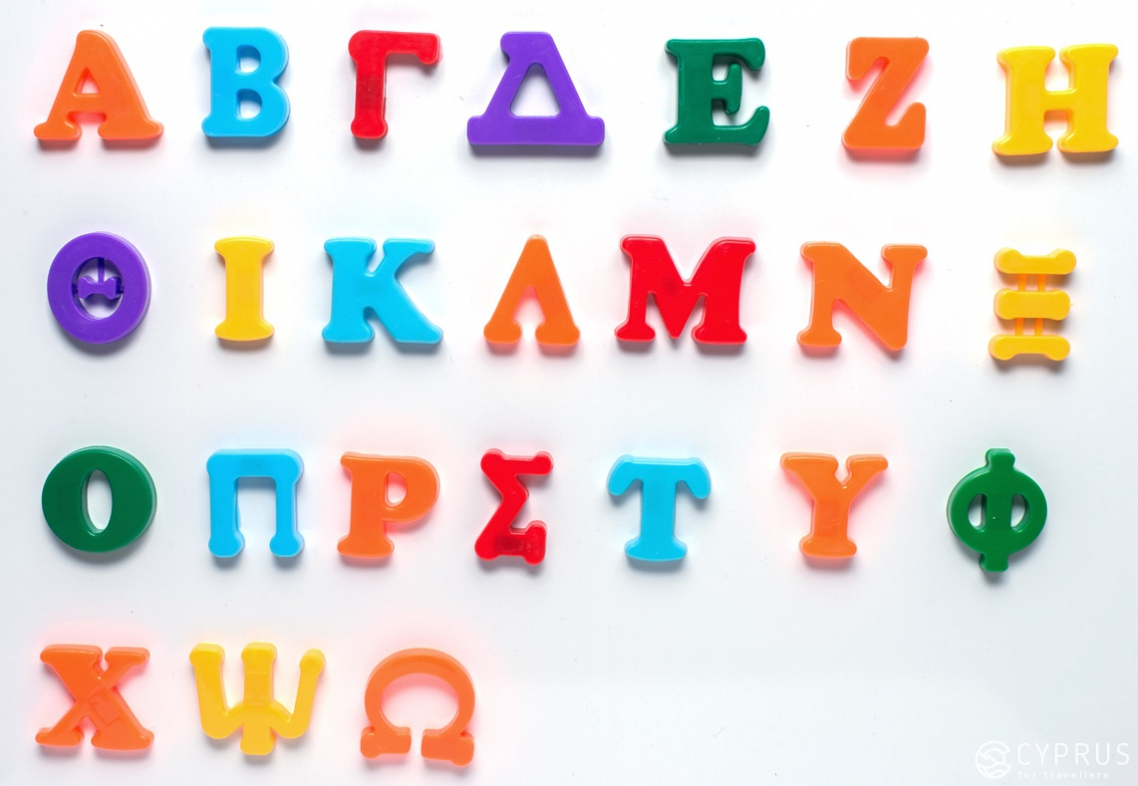
For those who want to use some Greek phrases on vacation, we prepared this small phrase-book with several common words and expressions (try to articulate all the vowels very properly, even if it seems unusual at the beginning).
Hello — Γεια σας. (YAH sahss)
How are you? — Τι κάνετε; (tee KAH-neh-teh?)
Fine, thank you — Καλά, ευχαριστώ (kah-LAH ef-khah-rees-TOH)
Goodbye — Αντίο. (AHN-dee-oh)
I don't understand — Δεν καταλαβαίνω. (dhen kah-tah-lah-VEH-no)
Yes — Ναι / Μάλιστα (neh / MAH-li-sta)
No — Όχι. (OH-hee)
Where is the nearest hotel? — Πού είναι το κοντινότερο ξενοδοχείο; (Poo einai to kontinotero ksenodoxio;)
I love you — Σ'αγαπώ (sa-gha-POH)
I'm sorry — Λυπάμαι. (lee-PAH-meh)
That's all right — Κανένα πρόβλημα. (kaknena provlima)
I need your help — Χρειάζομαι την βοήθειά σας. (hreeh-AH-zoh-meh teen voh-EEH-thih-AH sas)
I'm sick — Είμαι άρρωστος/τη . (EE-me hah-ROHS-tos/tee )
Can I use your phone? — Μπορώ να χρησιμοποιήσω το τηλέφωνό σας; (mboh-ROH nah khree-see-moh-pee-EEH-soh toh tee-LEH-foh-NOH sahs?)
How do I get to ...? — Πώς πηγαίνω στο/στην/στον(depending on gender) ; (pos pi-GEH-no sto/stin/ston)

